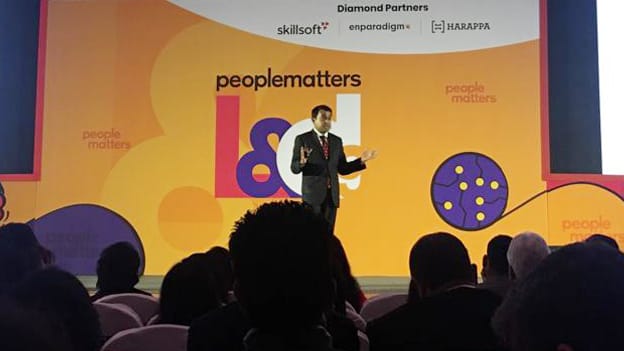Skills are the currency of the new labor market: Ravin Jesuthasan

“Skills are the currency of the new labor market,” said Ravin Jesuthasan, Managing Director and Global Practice Leader, Willis Towers Watson. “While work in the future is going to depend on the skills one possesses, it will be linked to whether robots can or can’t do the task at hand,” he added.
Speaking about macro-level trends, he noted that the shifting world of work is leading to new debates in structuring economies. “Universal Basic Income” – which has become a hot topic, is being explored in order to sustain a consumption based economy as more people will need to reinvent their skills continually. It is in this context, Billionaire philanthropist Bill Gates has suggested that governments should move towards taxing capital and use of robots, instead of income.
With news of automation taking over jobs doing the rounds, it’s important to understand that work broken down into repeatable tasks will not be done by humans.
This means that new jobs will emerge depending on whether automation based technology has the potential to automate or to augment work. There is already a virtual ecosystem of gig workers, freelancers, virtual assistants available on-demand supporting organizations. And it’s also critical to understand how they’re impacting work.
The role of learning
Businesses will have to think about the ‘value and rewards’ in work differently.
As learning moves to the heart of the value proposition for employment, it’s a shift that’s transforming learning models from a linear model to an agile one.
While previously, an employee moved from getting a degree to a job, now prospective candidates have to re-invent themselves many times over, throughout their career.
The new learning model needs to address a plurality of purposes – which means multiple skills for multiple jobs with a focus on continuous re-skilling and reinvention.
Jesuthasan pointed out that curiosity and the desire to learn what’s next is critical for the future.
Imperatives for the future
“Are you redesigning jobs to increase or reduce skill premiums?” Jesuthasan asked.
On Leadership: As the world of work moves to the boundaries, leadership should also reflect the shift. Leaders need to operate in a disbursed manner empowering teams to make their own decisions, he said.
On Alignment: Increasingly, the challenge in the future is going to be on how to ensure that employees, gig workers, freelancers and a whole range of stakeholders connected to the purpose and values of the organization.
On Culture: Hierarchies and control structures will not propel organizations forward. Recalling an instance of a business leader’s reflection on the changing paradigm, he pointed out that ‘culture is the new structure’.
In the last ten to twelve years, with continous technology updates, Jesuthasan said there’s been perpetual obsolence. In this context, it is worth asking, how are we going to propel our own journey?













